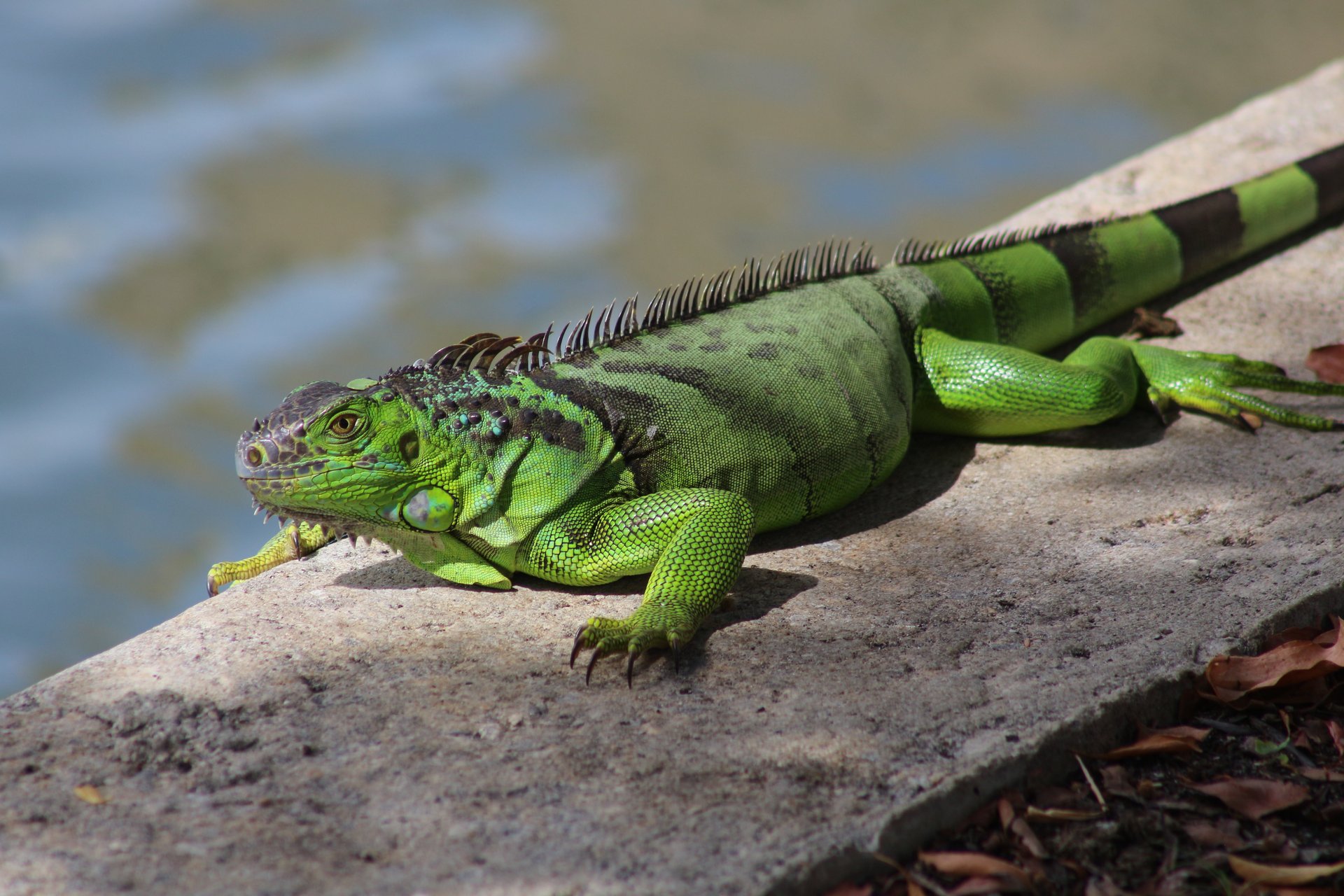After a human shooting, Florida tempers its advice on hunting invasive iguanas
The Florida Fish and Wildlife Commission (FWC) wishes to inform state residents that they can kill green iguanas, which are not a native species, but they can’t go around shooting the creatures willy-nilly.


The Florida Fish and Wildlife Commission (FWC) wishes to inform state residents that they can kill green iguanas, which are not a native species, but they can’t go around shooting the creatures willy-nilly.
In a statement on July 25, the organization clarified confusion about its earlier guidance on hunting the invasive species, stating, “Unfortunately, the message has been conveyed that we are asking the public to just go out there and shoot them up. This is not what we are about; this is not the ‘wild west.’”
In early July, media reports noted that the FWC had declared “open season” on green iguanas. Some people interpreted the guidance as clearance to kill the creatures by any means necessary, although the agency’s website specifically states that they must be hunted humanely and are, like all nonnative, invasive species, protected by state anti-cruelty laws.
Now that a human has been shot in one resident’s quest to get rid of iguanas, the FWC is being more explicit, however. “If you are not capable of safely removing iguanas from your property, please seek assistance from professionals who do this for a living,” said FWC commissioner Rodney Barreto in the most recent statement.
On July 5, an iguana hunter armed with a pellet gun accidentally shot a swimming pool maintenance worker in a residential neighborhood of Boca Raton. E-Lyn Bryan heard a shout and saw blood squirting from a wound sustained by her “pool guy.” She told NBC 6 in south Florida, “We have iguanas everywhere. If neighbors are gonna be like the Wild West and shoot at everything, someone’s gonna get killed.” Bryan said her neighbors were “horrified” by the incident, which drew police and paramedics. “You need to protect your children. The kids fish back here all the time,” she warned.
While the latest FWC statement doesn’t specifically refer to the Boca Raton shooting, it is notable that it used the same “wild west” formulation as Bryan employed with the local press. The accident may not be the only reason for the agency’s course correction, however.
In a blog post on July 10, the Humane Society of the United States accused the agency of failing to provide sufficient guidance on what precisely “humane killing” entails. It predicted that the state’s efforts to curb the invasive species’ population growth would lead to the deaths of native iguanas as well. “Last year we reported that the commission had hired contractors from the University of Florida to trap and kill iguanas either with bolt guns or by smashing their heads against hard objects. Conscripting Florida residents to kill the animals amplifies that archaic approach and reinforces a troubling message—that animals seen as ‘pests’ or as a nuisance should be summarily killed,” the humane society wrote.
Green iguana populations are problematic because they “can cause considerable damage to infrastructure, including seawalls and sidewalks,” according to the FWC. The agency is now urging local homeowners to contact professionals who specialize in getting rid of the creatures rather than acting independently.
The company Iguana Busters, for example, which offers commercial and residential services in South Florida and the Florida Keys, promises that it “incorporates safe and humane techniques while removing the iguanas.” But its website offers no details on these methods.